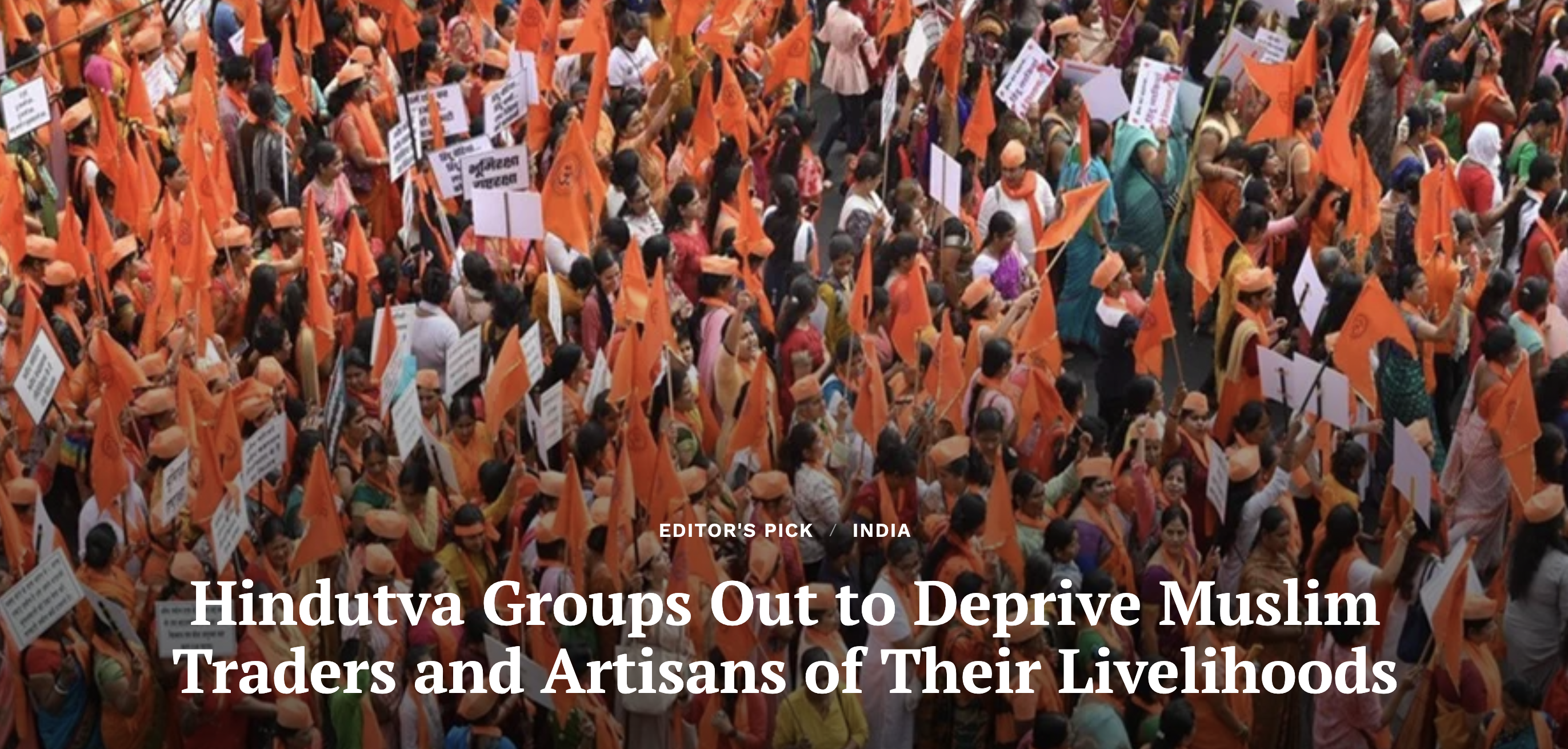
NEW DELHI – Rightwing Hindu organisations have launched a coordinated campaign to economically boycott Muslim businessmen, artisans, and service providers across the country. The campaign, often taking forms such as “fruit jihad,” “spit jihad,” “urine jihad,” and “jeans jihad,” has increasingly spread to major cities and towns, affecting livelihoods of thousands of Muslims. The latest case, emerging from Mathura in Uttar Pradesh, has raised alarm among communities dependent on festival-related commerce.
Falahari Baba, a local religious figure in Mathura, has publicly appealed to Uttar Pradesh Chief Minister Yogi Adityanath, urging him to ensure that on Krishna Janmashtami, only clothes made by Sanatani Hindu artisans are purchased. In his statement, Baba asked, “How can a Hindu god wear a dress stitched by a Muslim?”
This appeal threatens the livelihood of hundreds of Muslim artisans who stitch Shringar Poshak — the traditional attire for Radha Rani and Bal Gopal — in Mathura. These artisans, who contribute significantly to the local economy, have already been adversely affected by similar campaigns, such as the “jeans jihad” controversies in Sambhal in Uttar Pradesh and Khayala area in West Delhi.
Muslim artisans fear that these appeals could result in a double blow to their employment, especially during festive seasons, which are a primary source of income. A large-scale industry exists around Krishna Janmashtami, with devotees from across India and abroad visiting Mathura to purchase specially crafted costumes for Radha, Krishna and tableaux displays. The economic impact of a religiously motivated boycott in this context could run into crores of rupees.
Observers note that the boycott of Muslims has become a structured and recurring pattern. It often starts with publicising the alleged mistake of one individual from the Muslim community and escalating it to target the entire group. This strategy first gained momentum in Delhi, where Kapil Mishra, the Tourism Minister of the Delhi government, established a group under the so-called Hindu Ecosystem initiative in 2020.
The campaign deliberately seeded distrust against Muslim communities and spread across villages nationwide. Social and economic boycotts became increasingly common, with public appeals urging Hindus not to purchase goods or services from Muslims and to exclude them from festivals, weddings, and other occasions.
This story was originally published in clarionindia.net. Read the full story here.

